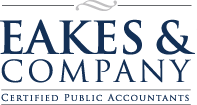You Have to HAVE Money to Invest Money
What should I invest in? It’s a good question, but it’s not always the right question. For many of us investing wisely means investing in our own debt eradication.
If you’re carrying debt, even on a low interest card at 11% apr, you would need to have a return of 15% on an investment just to break even in making the choice to continue to carry that debt and invest the money you’d use to pay it off in Stocks, Bonds, Mutual Funds or other Managed Funds.
Invest in Companies You Love
REI, Beyond Meat, Naked Wines, Deciem…what’s your passion company? If you are a rabid fan you can be sure others are as well. Having your finger on the pulse of the market is like carrying a greased pig, it’s tough even for professional pig-carriers.
Invest in a company you believe in and the return is not only in the dividends you’ll see in your portfolio but just as much in seeing that company thrive.
Types of Investments
Equity securities, which represent ownership of a part of a company. These are commonly known as Stocks. Likely you’re most familiar with stocks. You may even own some, dabble online with buying and selling. When you buy stock you own a share of a company's assets.
Debt securities, which represent a loan from the investor to a company or government entity. The most common form of corporate debt security is the bond. In return for the use of the money, the company agrees to pay bondholders a certain amount of interest each year, a percentage of the amount loaned.
The U.S. Government also issues debt securities: Treasury bills, Treasury notes, and U.S. Government agency bonds.
Local governments issue municipal bonds issued by states, cities, or certain agencies of local governments such as school districts. These are federal income tax free!
A stock option is a type of derivative security and refers to the right to buy or sell something at some point in the future. Most are not appropriate for the average investors.
When you invest in a mutual fund, the fund invests in individual equity and debt securities. There's no need to make individual purchase and sale decisions. Mutual funds also provide an easy way to diversify a portfolio. Rather than purchasing 50 stocks yourself, you can purchase a single mutual fund.
Protecting Yourself
As with any large purchase, investors have a vested interest in doing their research! Here are a few reminders of way to protect yourself from unscrupulous securities sales.
- Don’t buy things over the phone.
- Don’t buy based on tips - insider trading is a crime.
- Don’t buy without consulting a trusted financial professional.
- Slow and steady wins the race. Get rich quick schemes are usually just that… schemes not strategies.
The SEC and Prospectuses
A prospectus containing information about the company that is presenting itself to investors must be provided before their purchase. In almost all cases those prospectuses must be updated quarterly and annually in filings made with the SEC.
While the SEC periodically reviews reports for completeness, it does not review every detail. It is the responsibility of the investor to throughly research companies they are thinking of investing in.
If materially false or misleading statements were made in the prospectus, the SEC can file injunctions. Investors, however, must seek such recovery through the appropriate courts since the SEC has no power to collect or award damages or to represent individuals.
How Securities Are Bought and Sold
Securities are everything from stocks to corporate bonds, government bonds, mutual funds, options, and municipal bonds.
Securities are bought and sold on the New York Stock Exchange and the American Stock Exchange in New York City.
Companies listed on the exchange have met a certain standard of reliability, however, listing on an exchange does not provide any assurance as to risk and return.
Often securities are not traded on an exchange but rather, over the counter (OTC) through brokers and dealers. The National Association of Securities Dealers' Automated Quotation System (NASDAQ), trades OTC stocks on-line.
If you buy or sell securities your contact will be with an account executive or financial consultant who must be registered with the National Association of Security Dealers (NASD). They are the link between the investor and the traders and dealers on the floor of the exchange.

